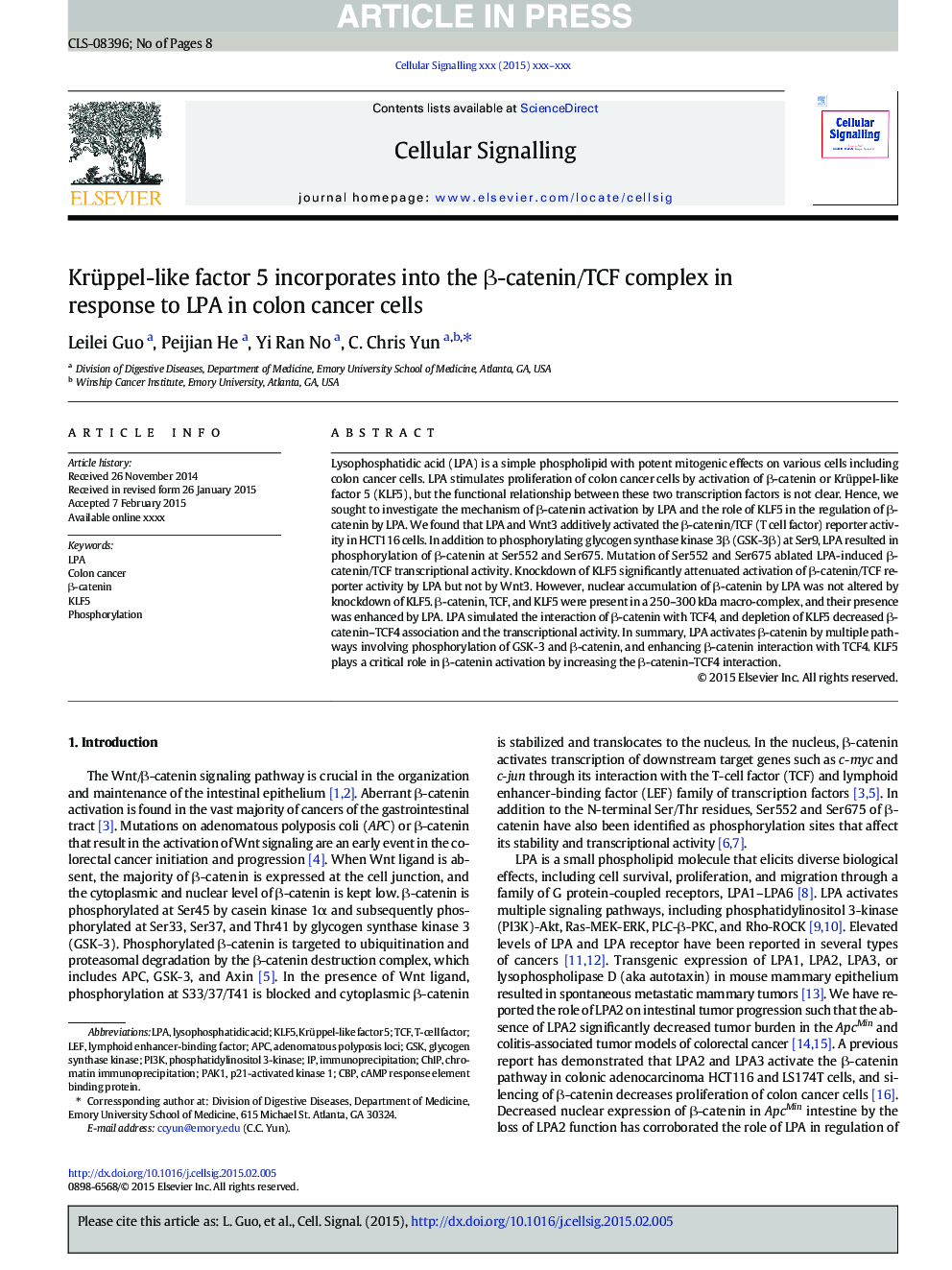| Article ID | Journal | Published Year | Pages | File Type |
|---|---|---|---|---|
| 10815117 | Cellular Signalling | 2015 | 8 Pages |
Abstract
Lysophosphatidic acid (LPA) is a simple phospholipid with potent mitogenic effects on various cells including colon cancer cells. LPA stimulates proliferation of colon cancer cells by activation of β-catenin or Krüppel-like factor 5 (KLF5), but the functional relationship between these two transcription factors is not clear. Hence, we sought to investigate the mechanism of β-catenin activation by LPA and the role of KLF5 in the regulation of β-catenin by LPA. We found that LPA and Wnt3 additively activated the β-catenin/TCF (T cell factor) reporter activity in HCT116 cells. In addition to phosphorylating glycogen synthase kinase 3β (GSK-3β) at Ser9, LPA resulted in phosphorylation of β-catenin at Ser552 and Ser675. Mutation of Ser552 and Ser675 ablated LPA-induced β-catenin/TCF transcriptional activity. Knockdown of KLF5 significantly attenuated activation of β-catenin/TCF reporter activity by LPA but not by Wnt3. However, nuclear accumulation of β-catenin by LPA was not altered by knockdown of KLF5. β-catenin, TCF, and KLF5 were present in a 250-300 kDa macro-complex, and their presence was enhanced by LPA. LPA simulated the interaction of β-catenin with TCF4, and depletion of KLF5 decreased β-catenin-TCF4 association and the transcriptional activity. In summary, LPA activates β-catenin by multiple pathways involving phosphorylation of GSK-3 and β-catenin, and enhancing β-catenin interaction with TCF4. KLF5 plays a critical role in β-catenin activation by increasing the β-catenin-TCF4 interaction.
Keywords
PI3KKlf5TCFAPCPAK1CBPGSKLPAp21-activated kinase 1lysophosphatidic acidchromatin immunoprecipitationβ-cateninImmunoprecipitationColon cancerT-cell factorlymphoid enhancer-binding factorkruppel-like factor 5Phosphatidylinositol 3-kinasePhosphorylationLefcAMP response element binding proteinCHiPglycogen synthase kinase
Related Topics
Life Sciences
Biochemistry, Genetics and Molecular Biology
Biochemistry
Authors
Leilei Guo, Peijian He, Yi Ran No, C. Chris Yun,
